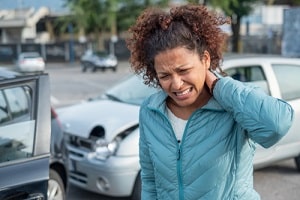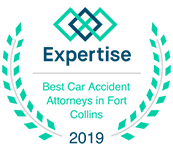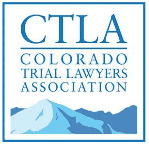Request a Free Consultation | No Upfront FeesSe Habla Español
970-225-2190 |
1-800-664-3151
Recent Blog Posts
Resolving Impairment Rating Disputes in a Colorado Workers’ Comp Case
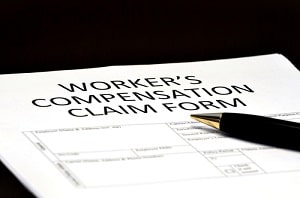
Work-related injuries often have long-term effects that go far beyond the initial costs of medical treatment, and in many cases, employees are left with permanent disabilities that limit their income and earning capacity. Colorado workers’ compensation includes permanent disability benefits in these cases, with the amount determined based on your previous income and an impairment rating assigned by your treating doctor. Because this impairment rating is so important for determining permanent disability benefits, it is crucial to ensure that your doctor’s assessment is accurate. If you disagree with the doctor’s recommended rating, you have the option to dispute it, and an attorney can help you do so.
How Are Impairment Ratings Assigned in Colorado?
When you are injured at work in Colorado, you will usually have to choose a doctor from a list provided by your employer. This doctor is responsible for assessing your condition and recommending and providing treatment, and as time passes, your doctor will also assess the progress of your recovery. When you reach a point at which your doctor no longer expects your condition to improve, he or she will report that you have reached Maximum Medical Improvement (MMI) and give you an impairment rating based on any remaining physical and mental limitations.
Common Rear-End Collision Injuries in Colorado
Rear-end collisions happen all of the time in Colorado and throughout the United States with varying degrees of severity, but they have the potential to be just as dangerous as any other type of car accident. A rear-end crash can result in a wide variety of injuries that require medical attention and may have long-lasting effects. Fortunately, it is often possible to pursue compensation for your damages and expenses through a personal injury claim.
Types of Rear-End Crash Injuries
If you have been struck from behind by another driver, you may be suffering from any of the following injuries:
-
Whiplash - Soft tissue injuries to the muscles and tendons in the neck are a frequent occurrence in rear-end accidents due to the sudden movement after impact. Whiplash can be hard to detect, and research suggests that some of its effects, including headaches, back pain, and sleep disturbances, may not become fully clear until well after the accident.
What Happens at a Colorado Workers’ Compensation Hearing?
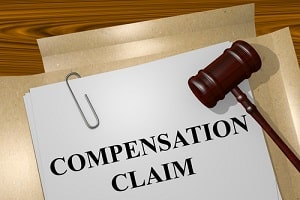
If you have suffered a work-related injury while working for an employer in Colorado, filing a workers’ compensation claim can help you obtain financial relief through your employer to cover your medical expenses and lost wages. In some cases, your claim may be approved without issue. However, if you encounter any disputes with your employer or their insurer throughout the process—for example, if your claim is denied or you disagree with your impairment rating—you may be able to resolve it by requesting a hearing.
The Workers’ Comp Hearing Process in Colorado
If you would like for a judge to resolve your dispute, your first step is to submit an Application for Hearing to the Colorado Office of Administrative Courts (OAC), in which you will need to identify and describe the issues that you would like the hearing to address. The OAC will schedule and notify you of the date and time of your hearing so that you can begin preparing. It is a good idea to work with a qualified attorney as you prepare for your hearing, as we can help you collect evidence and identify witnesses who can testify in support of your position. We will use this evidence and testimony to help you build a comprehensive case to present at the hearing.
What Evidence Can I Use for My Colorado Car Accident Injury Claim?
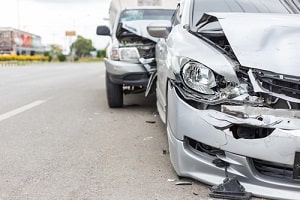
If you have been injured in a car accident due to someone else’s negligence, you have the right to pursue compensation for your medical bills, property damage, and other economic and non-economic damages through a personal injury claim. However, in order for your claim to succeed, you will need strong evidence to both to establish the at-fault party’s negligence and to support the amount of compensation you are pursuing. In Colorado, civil trial juries are instructed to decide for the plaintiff based on a preponderance of the evidence, meaning that if your case goes to trial, you will need to show that it is more likely than not that the defendant’s negligent behavior was the cause of your injuries. Even if your case does not go to trial, evidence can provide the leverage you need to reach a fair settlement.
Watch Out for Runaway Trucks While Driving on I-70 in Colorado

In Colorado, I-70 and other major roads that traverse the Rocky Mountains present significant challenges for semi-truck drivers. Steep inclines and winding curves can make it easier to lose control of such large vehicles, and the winter months bring snow, ice, and hail that make driving conditions even more difficult. If you are sharing the road with truck drivers, you should be aware of the accident risk and know how to react if you are injured.
Colorado Roads Require Safety Precautions for Truck Drivers
Even with these challenges, truck drivers still have a responsibility to operate their vehicles in a way that protects the safety of others on the road. In order to safely navigate I-70 and other Colorado mountain highways, truck drivers should take extra care to maintain a safe speed and shift to a lower gear on steep downgrades. They should also be sure that their vehicles have fully functioning brakes, and that they know how to use them safely to prevent them from overheating and failing. Colorado has installed runaway truck ramps for drivers who do lose control of their vehicles, and the Colorado Department of Transportation (CDOT) has recently partnered with other state organizations to better educate, prepare, and alert truck drivers of hazards and how to respond to them.
Pursuing Compensation for My Colorado Pedestrian Accident Injuries
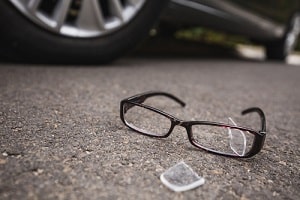
Drivers and vehicle occupants are not the only people susceptible to car accident injuries. Pedestrians are also often at risk, especially in urban areas, and when they are struck by a car, the injuries can be severe. The National Highway Traffic Safety Administration (NHTSA) reported nearly 6,000 pedestrian fatalities in 2017, with 92 of them in Colorado, and numbers have been similar in more recent years. If you or a family member has been injured in a pedestrian accident, you have options for pursuing compensation from the at-fault driver.
What Causes Pedestrian Accidents?
Accidents between vehicles and pedestrians are often caused by many of the same negligent behaviors that contribute to other car accidents. These actions may include but are not limited to:
What to Do After a Catastrophic Work-Related Injury in Colorado
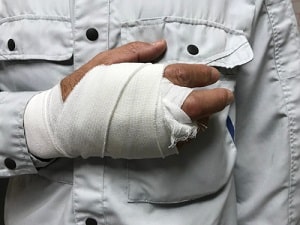
In most cases, employees who are injured at work in Colorado are entitled to workers’ compensation benefits through their employer. This applies regardless of the severity of the injury, as long as it requires medical care, but it can be especially important for employees who suffer catastrophic injuries that permanently impact their lives. If you are severely injured at work, an attorney can help to ensure that you receive all available benefits.
Common Catastrophic Workplace Injuries
Colorado workers can be seriously injured in a number of ways, especially when their occupations put them in close contact with environmental risks and hazards. Some of the most common catastrophic injuries that occur in the workplace include:
-
Traumatic brain injuries (TBI), including concussions and other injuries resulting from blunt force impacts to the head. These commonly occur due to falls, vehicle accidents, and accidents involving falling objects or heavy equipment.
Are Car Accidents More Common on Thanksgiving Weekend in Colorado?

Thanksgiving weekend is often a time for celebration and family togetherness. However, it also tends to be a period of increased risk of getting in a car accident. Although not as many people may have been traveling for Thanksgiving this year due to the COVID-19 pandemic, there was likely still greater traffic than normal. It is important that you are aware of how another driver’s negligence can affect you and your family’s safety on the roads. In the event of a collision, an experienced personal injury attorney can help you seek compensation for your damages.
The Risks of Thanksgiving Driving
Thanksgiving weekend driving in Colorado can be risky for a number of reasons, including:
-
More travelers on the road: In a typical year, large numbers of families in Colorado and throughout the United States drive to a Thanksgiving gathering. Many Colorado ski resorts also have an opening day near the end of November, creating another reason for increased holiday weekend travel.
What Are the Most Common Human Factors in Colorado Car Crashes?

If you have been injured in a car accident, your chances of obtaining compensation usually rest on the ability to demonstrate that another person was responsible for the crash due to his or her negligent behavior. Recent data published by the Colorado Department of Transportation (DOT) points to the prevalence of driver negligence in automobile collisions, indicating that from 2005 to 2018, more than half of all car accidents throughout the state involved an apparent “human contributing factor.” Many of the common factors noted can form the basis of your personal injury case.
Human Contributing Factors in Car Accidents
The Colorado DOT’s report further breaks down some of the specific behaviors involved in crashes that had a clear human contributing factor. Some of the most common were:
What Happens if My Colorado Workers’ Compensation Claim is Denied?

Colorado employers are required by law to have workers’ compensation insurance, which covers medical expenses and lost wages for employees who are injured on the job. However, not every employee who files a workers’ comp claim receives the compensation they are requesting. If you have suffered a work-related injury and your claim is denied, an attorney can help you take the steps to dispute the outcome and get the compensation you need and deserve.
Why Was My Workers’ Compensation Claim Denied?
A claim for workers’ compensation can be denied for a few different reasons, some of which include:
-
A delay in reporting or filing: Colorado law requires employees who are injured at work to notify their employer in writing within four days of the injury, and to file a workers’ compensation claim within two years of the injury. If you have missed either of these deadlines, your claim may be denied.

970-225-2190 | 1-800-664-3151
1403 W. 29th St.,
Loveland, Colorado 80538
Greeley:
3835 W. 10th Street, Unit 100,
Greeley, Colorado 80634|
970-460-2220
Longmont:
353 Main Street, Suite A,
Longmont, Colorado 80501|
720-575-0509
Boulder:
4450 Arapahoe Avenue, Suite 100,
Boulder, Colorado 80303|
303-997-2018
Ft. Collins:
1109 Oak Park Dr Ste 100,
Fort Collins, CO 80525|
970-225-2190
Cheyenne:
109 E. 17th St., Suite #6148,
Cheyenne, WY 82001|
307-227-4051 (By Appointment Only)


